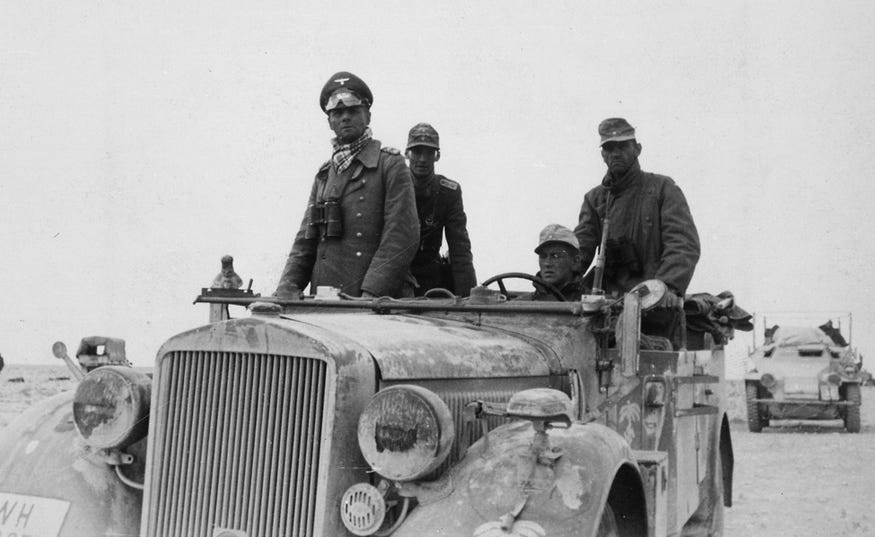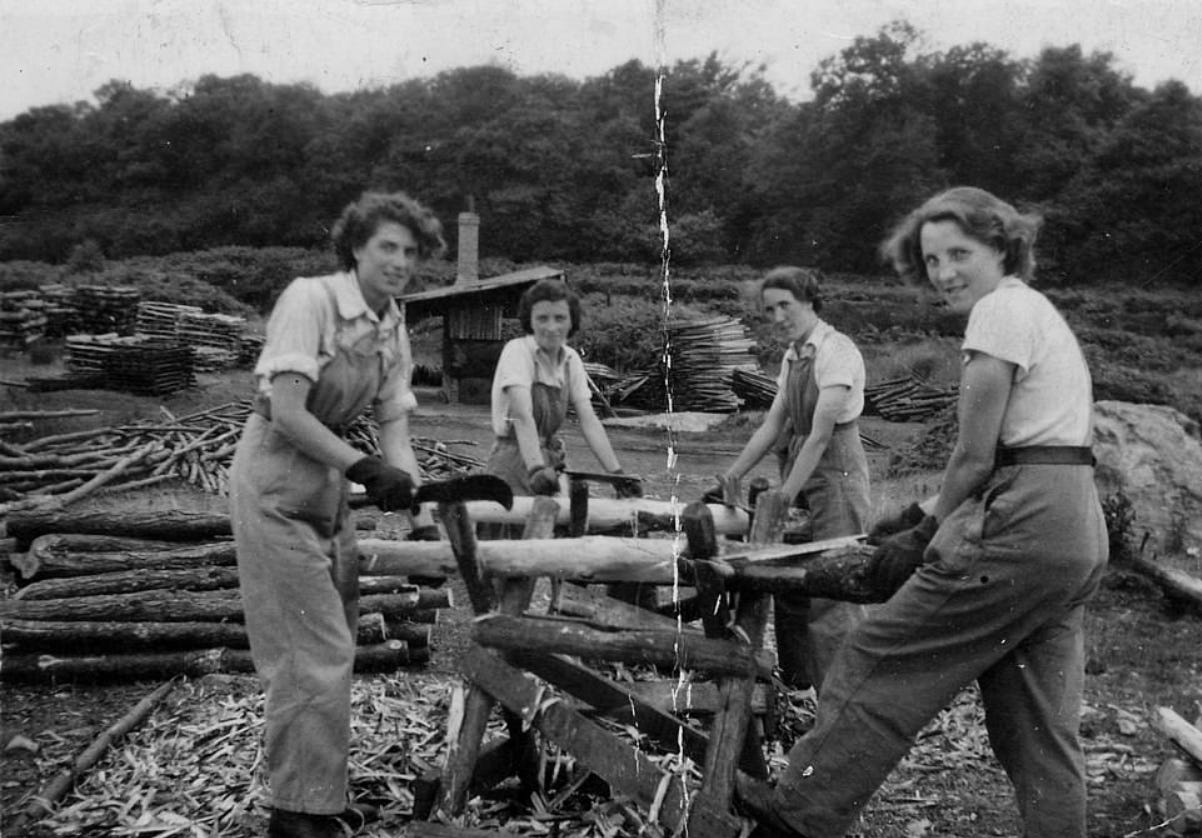Reading the paper on February 22, 1943.
German tank and infantry battalions under General Erwin Rommel have captured the Kasserine Pass, a gap in the mountains of west Tunisia, in the first direct encounter between German and American forces in the war.

American defenders of the Pass suffered heavy losses and were forced to retreat fifty miles.
British armoured units have now joined with the Americans for a counter-attack and more heavy fighting is expected there in the coming days.


Soviet officials say, in the past three months, Germany has transferred nearly half a million troops from Western Europe to the Eastern Front to attempt to stall the Red Army’s advance into German-occupied territory.
Reports have emerged that German occupation forces in Kharkiv, Ukraine, arrested two thousand citizens after a German general and others in Nazi military headquarters there were killed in a bomb blast.
At least 250 of the hostages were shot and dozens of others were hanged from trees, lamp posts and balconies.

Yesterday the US Navy announced the loss of the mine-laying submarine Argonaut, the largest submarine in the fleet, in action near New Guinea in the South Pacific .
All 102 hands were lost.
Over the course of the war, the Navy would lose 52 of its 288 submarines.
The current count of merchant vessels and other ships sunk by the enemy off the US East Coast stands at 614.
Also yesterday, federal officials announced a new rationing scheme for canned and processed foods will go into effect on March 1 which will cut civilian allocations by fifty percent.
The reduction is due to the high food demands of the US military, along with increasing needs of Allies receiving aid under the Lend-Lease program.
Food will be assigned point values.
Under the new scheme, civilians could spend their point allocations to purchase one can of peas, tomatoes and peaches per month.
But they could purchase sixteen cans of sauerkraut per month, since sauerkraut will be assigned the fewest points.

The US Secretary of Labor, Frances Perkins, has said there is no need to draft civilian men and women into the labor force to fill war production jobs, as has been proposed in Congress recently.
She noted that volunteer employment has so far proven sufficient to meet the government’s requirements.
But a labor shortage in Britain has forced officials to begin conscripting women, up to age forty-five, who have no young children, to fill jobs across the country.


The National Legion of Decency has condemned the Howard Hughes film, “The Outlaw,” a movie about Billy the Kid which stars Hollywood new-comer Jane Russell.
‘The film presents the glorification of crime and indecent actions,’ the group said, and ‘is indecent in costuming.’
The film has been banned in New York state and elsewhere across the country.

Free recreation activities for servicemen in New York City:
Boxing at the St. Nicholas Arena
Roller skating at the Columbus Circle Rink

The film “Casablanca” at the Strand Theater
The Hayden Planetarium
An Arcadia Ballroom Dance

And finally…
Britain currently operates more than one thousand citizen advice bureaus for civilians with questions about wartime life.
They rely on a collection of government reports and advisories to answer the queries and report handling nearly six million so far.
The most common citizen questions concern clothing rationing, but they have included some interesting dilemmas.
In one case, a woman called looking for a safe place to board her dog.
The advice bureau paired her with another woman who had just lost her dog and was heartsick and anxious to find another one.
In another case, a woman called the bureau seeking advice for a sick donkey who would not eat since her son, who had always fed the animal, had gone off to war.
The advice bureau, run by local people, called her neighbor who then imitated the son’s voice and, speaking gently to the donkey, got him to eat again.

Then there was the man who called to ask the date of the expected German invasion of England, explaining that he didn’t want to evacuate his wife from their home until it was absolutely necessary.
Thankfully, it never was.
I’ll see you on Monday.
— Brenda
















Share this post